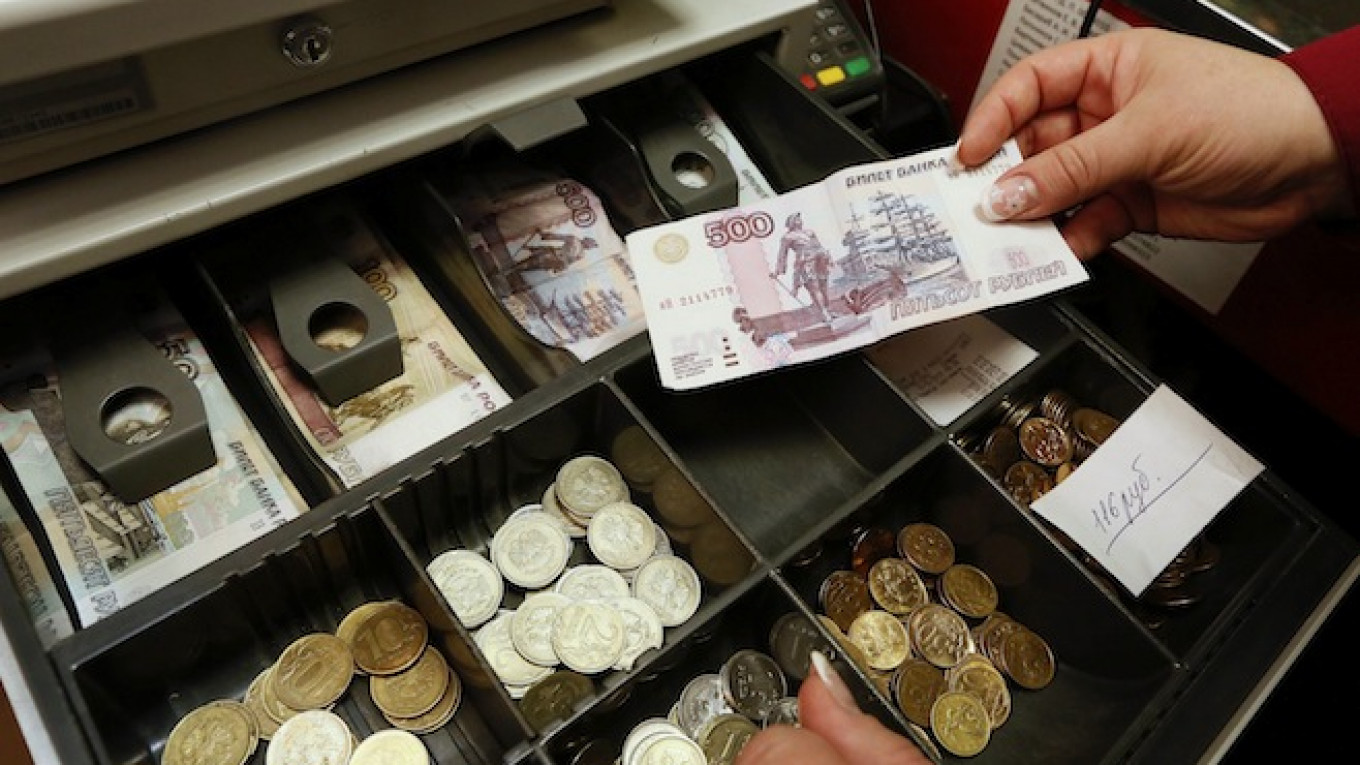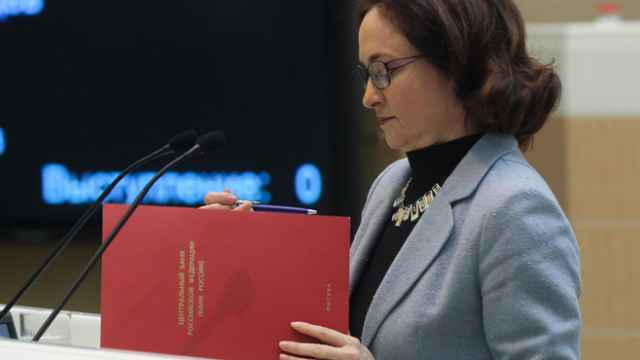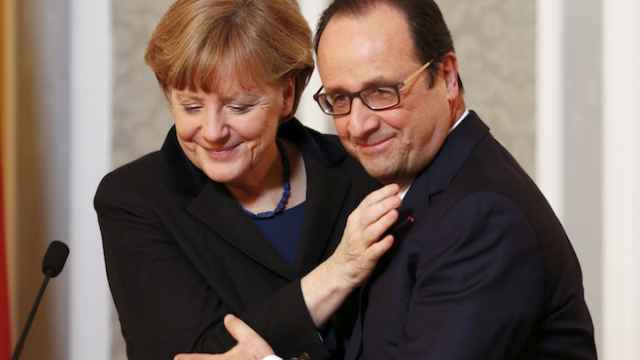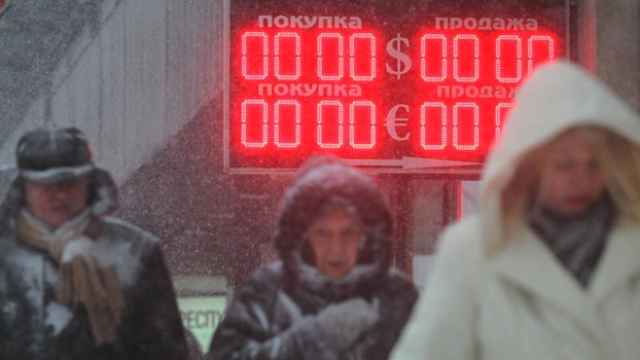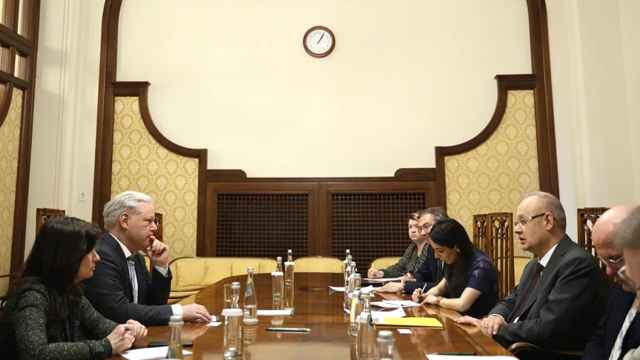Russian assets strengthened on Thursday after leaders at peace talks in Minsk agreed a deal to halt fighting in eastern Ukraine, but the ruble's bounce was short-lived as currency dealers saw foreign currency purchases pick up.
Moscow's dollar-denominated RTS index closed up 3.5 percent at 862 points, while its ruble-based peer MICEX was 2.2 percent higher at 1,803 points.
Russian Eurobonds, meanwhile, rose across the curve, with the yield on the benchmark 2030 dollar bond falling 32 basis points to 6.06 percent.
The ruble initially jumped before sliding to 65.5 to the dollar at 9 p.m., around 0.4 percent weaker than the previous close. It was 0.9 percent weaker against the euro at 74.6.
A currency dealer at a Western bank said a large player could be closing positions opened earlier in the session, and that algorithmic trading programs could be playing a role.
Analysts said an onerous burden of foreign debt repayments could also be driving Russian firms to buy dollars on the market. Russian firms have around $36.5 billion in gross foreign debt repayments due in February and March, according to Central Bank data.
Participants at the Minsk summit, attended by the leaders of Ukraine, Russia, Germany and France, as well as pro-Russian separatists fighting in eastern Ukraine, said the cease-fire would come into force on Feb. 15, followed by the withdrawal of heavy weapons.
Russian President Vladimir Putin said the sides had agreed on the "main issues." German Chancellor Angela Merkel said Putin had put pressure on the separatists to agree to the cease-fire, but that "very much work" still needed to be done.
Despite the remaining hurdles to a lasting peace, the cost of insuring exposure to Russian debt via credit default swaps fell to a near-six week low, according to financial data provider Markit.
Rosneft
Brent crude rose over 3 percent on Thursday to $56.50 a barrel, underpinning Russian asset prices.
Market sentiment was boosted by top oil producer Rosneft, which said it had repaid a $7 billion tranche of a two-year bridge loan.
Rosneft, whose access to international capital markets is restricted by Western sanctions, said it had not bought foreign currency on the market to make the payment.
A debt repayment by Rosneft in December coincided with a dramatic collapse in the ruble, leading some in the market to believe the oil company was partly responsible.
Rosneft has denied any hand in the ruble's weakening, despite the head of the Central Bank describing a bond placement by Rosneft in December as "not transparent" and a cause of currency volatility.
A Message from The Moscow Times:
Dear readers,
We are facing unprecedented challenges. Russia's Prosecutor General's Office has designated The Moscow Times as an "undesirable" organization, criminalizing our work and putting our staff at risk of prosecution. This follows our earlier unjust labeling as a "foreign agent."
These actions are direct attempts to silence independent journalism in Russia. The authorities claim our work "discredits the decisions of the Russian leadership." We see things differently: we strive to provide accurate, unbiased reporting on Russia.
We, the journalists of The Moscow Times, refuse to be silenced. But to continue our work, we need your help.
Your support, no matter how small, makes a world of difference. If you can, please support us monthly starting from just $2. It's quick to set up, and every contribution makes a significant impact.
By supporting The Moscow Times, you're defending open, independent journalism in the face of repression. Thank you for standing with us.
Remind me later.


